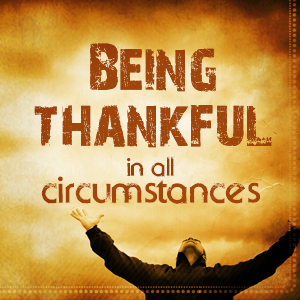Post # 50 -- Live
in Thanksgiving Daily
Dear Family and Friends
This month my
posts have been focused on thanksgiving and on giving thanks, especially to our
Father in heaven for all that He has blessed each of us with. I hope these
posts have helped each of you to remember the Importance of giving thanks to
our Heavenly Father for every blessing we have been given. I see so many kids
every day and they seem to be so ungrateful, so disrespectful of other people
in their lives, it is very sad. Our world is so full of blessings, all around
us if we but take the opportunity to look for them.
I know this talk was given a few years ago, but I believe
the counsel is still so relevant today. Elder Wirthlin is no longer with us,
but his counsel is so priceless that I wanted to share it with each of you. And
please, feel free to share it with those you love. I am sure that what he
shares would be perfect for a family home evening activity. This talk was given
in September of 2001 from a devotional address that was given at Brigham Young
University on October 21, 2000. It is called :’Living in Thanksgiving Daily,’
by Elder Joseph B. Wirthlin Of the Quorum of the Twelve Apostles.
Think for a
moment, if you will, of someone you know who is truly happy. We’ve all met
those who seem to radiate happiness. They seem to smile more than others; they
laugh more than others – just being around them makes us happier as well.
Now think of someone
you know who isn’t happy at all. Perhaps they seem 10 years older than they are
drained of energy—perhaps they are angry or bitter or depressed. What is the
difference between them?
What are the
characteristics that differentiate the happy from the mis miserable? Is there
something that unhappy people can do to be happier? I believe there is.
Let me tell you a
story to illustrate this observation.
A long time ago in a
faraway village lived a man who everyone did their very best to avoid. He was
the type of person who believed that there was only one competent person in the
world, and that one person was himself. Consequently, he was never satisfied
with anything. His shoes never fit right. His shirt never felt comfortable.
When his food wasn’t too cold, it was too salty, and when it wasn’t too hot, it
was too bland


If a field wasn’t
sowed by himself, it was not sowed well. If he didn’t close the door, the door
was not closed properly.
In short, he made a
career of frowning, lecturing, criticizing, and mumbling about the
incompetencies of every other person in the rest of the world.
Unfortunately, the man
was married, which made matters all the worse. No matter what his wife did in
his eyes it was wrong. No matter what the unfortunate woman cooked, sewed, or
cleaned—or even when she milked the cow—it was never satisfactory, and he let
her know it.
She tried very hard to
be a good wife, but it seemed the harder she tried, the less she pleased him. Finally,
one evening she could take no more.
“I’ll tell you what
we’ll do,” she told him. “Tomorrow I will do your chores and you will do mine.”
“But you can’t do my
chores,” the man replied. “You don’t know the first thing about sowing, hoeing,
and irrigating.”
But the woman was
adamant. And on top of that, she was filled with a righteous anger that frankly
astonished and frightened the man to the point where he didn’t dare disagree.
So the next morning
the wife went off to the fields and the man began the domestic chores. After thinking
about it, he had actually convinced himself he was looking forward to it. Once
and for all, he would demonstrate to his wife how things should be done
Unfortunately, not
everything went according to plan. In fact, nearly everything the man touched turned
into disaster. He spilled the milk, let the pig get into the house, lost the
cow, burned the dinner, and ultimately set the house on fire, narrowly escaping
with his own life.
When his wife
returned, she discovered her husband sitting on a pile of ashes, smoke still
rising from his clothes. But the woman wasn’t the type to rub things in. She
helped him up, wiped the soot from his beard, fixed him a little something to
eat, and then prepared a bed of straw for them to sleep on.
From that day forward,
the man never complained about anyone or anything else for as long as he lived.


What do you suppose
this story teaches us?
For one thing, it
teaches that those who complain make their own and others’ lives miserable. The
story also teaches humility. It reminds us that “pride goeth before
destruction, and an haughty spirit before a fall” (Prov. 16:18). It teaches us not to judge others until we walk in
their shoes for a while.
In addition, the story
illustrates a quality that the Roman orator Cicero claimed was “not only the greatest
of virtues, but the parent of all the others” (Marcus Tullius Cicero, Pro
Plancio, 54 B.C.). It is a quality I have found in every happy person I
know. It is a quality that instantly makes a person more likable and more at
peace. Where there is an abundance of this virtue, there is happiness. Where
there is an absence of this virtue, there is often sadness, resentment, and
futility.
In our story, it was
the absence of gratitude that made the man miserable. His inability to
appreciate others caused him to be critical of their efforts. Not only did he
not empathize with them, he could not allow himself to acknowledge their
contributions.
The disasters that
confronted him surely made him humble, but, more particularly, they made him appreciate
and be grateful for his wife.


Gratitude is a mark of
a noble soul and a refined character. We like to be around those who are grateful.
They tend to brighten all around them. They make others feel better about
themselves. They tend to be more humble, more joyful, more likable.
You might be surprised
to know that gratitude is a commandment of the Father. “Thou shalt thank the
Lord thy God in all things” (D&C 59:7),
the Lord has commanded in these latter days. Even further, He has admonished
that “in nothing doth man offend God, or against none is his wrath kindled,
save those who confess not his hand in all things, and obey not his
commandments” (D&C 59:21).
In the Book of Mormon we learn that we should “live in thanksgiving daily”
(Alma 34:38).
Isn’t that a wonderful thought to live in thanksgiving daily? Can you imagine
how your life would improve if you lived in thanksgiving daily? Can you imagine
how your life would improve if others did the same? Do you think the world
would be a happier place? less stressful? less angry? more spiritual?
President Joseph F.
Smith proclaimed: “The grateful man sees so much in the world to be thankful for,
and with him the good outweighs the evil. Love overpowers jealousy, and light
drives darkness out of his life. Pride destroys our gratitude and sets up
selfishness in its place. How much happier we are in the presence of a grateful
and loving soul, and how careful we should be to cultivate, through the medium
of a prayerful life, a thankful attitude toward God and man!” (Gospel
Doctrine, 5th ed. [1939], 263).


Earlier I asked you to
think of someone you knew who was truly happy. Think of the person again, if
you will, and grade on this principle: Does he or she live in thanksgiving
daily?
Now think of someone
you know who is unhappy or resentful. Does this person live in thanksgiving
daily?
It is difficult to
even imagine a resentful person who is grateful or a grateful person who is
resentful. President Gordon B. Hinckley has said:
“Absence of gratitude
is the mark of the narrow, uneducated mind. It bespeaks a lack of knowledge and
the ignorance of self-sufficiency. It expresses itself in ugly egotism and
frequently in wanton mischief. …
“Where there is
appreciation, there is courtesy, there is concern for the rights and property
of others. Without it there is arrogance and evil” (in Conference Report, Oct.
1964, 117).


I believe that many
people are unhappy because they have not learned to be grateful. Some carry the
burden of bitterness and resentfulness for many years. Some pass their days as
though suffering a deep sadness they cannot name. Others are unhappy because
life didn’t turn out the way they thought it would.
“If only I had money,”
some might say to themselves, “then I could be happy.”
“If only I were
better-looking.”
“If only I were
smarter.”
“If only I had a new
car, a college degree, a job, a wife, hair that wasn’t so frizzy.” (Or, in my
case, if only I had more hair or I were 12 inches taller.)
If we only look around
us, there are a thousand reasons for us not to be happy, and it is simplicity
itself to blame our unhappiness on the things we lack in life. It doesn’t take
any talent at all to find them. The problem is, the more we focus on the things
we don’t have, the more unhappy and more resentful we become.
Over the course of my
years, I have met thousands of people. I have dined with the prosperous as well
as the poverty-stricken. I have conversed with the mighty and with the meek. I
have walked with the famous and the feeble. I have run with outstanding athletes
and those who are not athletically inclined.
One thing I can tell
you with certainty is this: You cannot predict happiness by the amount of
money, fame, or power a person has. External conditions do not necessarily make
a person happy. The Brethren who have had assignments in poorer countries
report that despite the abject poverty, the people are very happy. The fact is
that the external things so valued by the world are often the cause of a great
deal of misery in the world.


Those who live in thanksgiving
daily, however, are usually among the world’s happiest people. And they make
others happy as well.
Years ago Elder J.
Golden Kimball (1853–1938) of the Seventy was traveling with one of the
presiding Brethren in southern Utah. In those days meetings often didn’t have a
time limit; they went on as long as the speaker wanted to speak. For those of
you looking for something to be grateful for, perhaps I’ve just given you one
idea.
One fast Sunday they
had been preaching nearly all day. Everyone was hungry, especially Elder
Kimball, who felt that he “was pretty nearly dead.”
Finally, at about four
o’clock in the afternoon, the presiding Apostle turned and said, “Now, Brother
Kimball, get up and tell them about the Era.”
The Improvement Era
magazine had just been launched, and the Brethren wanted to encourage
subscriptions. Elder Kimball approached the pulpit and then, after a short
pause, said, “All you men that will take the Era if we will let you go
home, raise your right hand.” There was not a single man who did not raise his
hand that day to subscribe to the Era (see J. Golden Kimball, in
Conference Report, Apr. 1932, 78).

You see, the power of
gratitude is immense.
Rulon Gardner grew up
in the small town of Afton, Wyoming. He is one of nine children. His mother and
father are faithful members of the Church and instilled proper values in their
children.
But because Rulon was
so large, his classmates teased him. The taunts and name-calling troubled young
Rulon, but he never became angry or resentful. He could have withdrawn and
become bitter. Like so many others, he could have counted all the things that
were going wrong and simply given up. Instead, he used the insults as
motivation. He determined he would use his size to his advantage. He would make
something of himself.
“I would go out, as a
kid,” Rulon said, “and I could barely pick up a bale of hay. By the time my
senior year came around, I was grabbing four bales of hay at a time, each 100
pounds. Just grabbing them and walking with them and seeing how physically
strong I could be” (quoted in Alan Robinson, “Wrestler’s Magic Moment,”
Associated Press, Sydney, Australia, 28 Sept. 2000).
He milked cows twice a
day, often in subzero temperatures. He lifted frozen bales of hay to feed the
cows. At times he would carry a newborn calf into the safety of a warm barn. He
got up early in the morning, did his chores, then went to school. After school
he either went to wrestling or football practice, then back to the farm to do
more chores.
Rulon found that his
size wasn’t a disadvantage for him as an athlete—in fact, it was an asset.
Wrestling particularly came easy to him, and he became the Wyoming state
champion. After graduating from high school, he decided that perhaps he might
be good enough to compete in the Olympic Games.


In Atlanta in 1996,
due to a miscommunication, he arrived at the weigh-in 22 seconds too late and
missed his chance to compete. Again Rulon could have despaired. He could have
cursed his luck. He could have become embittered and resentful.
But do you know what
he did? He worked harder. Instead of burying himself in self-pity, he began
speaking at youth firesides about his experience. “I missed the Olympic Games
by 22 seconds,” he told his eager listeners. “Don’t you let anything keep you
from your goals.”
After four years of
hard work, Rulon Gardner wanted to compete in the 2000 Olympic Games in Sydney,
Australia. The only trouble was, he couldn’t afford the trip. That’s when the
members of his hometown rallied to his side. They held bake sales and potluck
dinners and raised enough money to allow Rulon and his family to make the trip to Sydney.
This time he did not
miss the weigh-in. He advanced through the preliminary rounds until he reached
the final obstacle to his gaining a gold medal.
That obstacle was a
man the world called the Siberian Bear, Alexander Karelin. This Russian bear is
considered by most as the greatest Greco-Roman wrestler in the history of the
sport. Not only had he not lost a single match in 13 years, but no one had
scored a point on him in more than a decade. Karelin had won the gold medal in
three previous Olympic Games and was the heavy favorite to win an unprecedented
fourth gold medal.


But at the end of the
gold-medal match, it was the farm boy from Afton, Wyoming, who stood triumphant
in what many consider the greatest upset of the summer Olympic Games.
“The reason I think I
won,” Rulon said, “is because I work harder than anyone else, train harder. And
every day I live my life, I do everything I need to do to put my life in order”
(quoted in Robinson, “Wrestler’s Magic Moment”).
Waving an American
flag, a grateful Rulon Gardner thanked his family, his God, and his hometown of
Afton, Wyoming, for their helping to make the moment possible.
Winning the gold medal
in such a stunning way made Rulon an instant celebrity. Sometimes this sort of
attention changes people. Sometimes people become more calloused. Sometimes
they forget those they owe the most to. But not Rulon Gardner.
Later, while Rulon was
a guest on an evening talk show, the host invited him to watch some highlights
from his Olympic victory. Without warning, the picture changed to a live shot
from Afton, Wyoming. It seemed that the entire population of the town had
assembled in the high school gymnasium. They cheered and shouted and held up
signs that said, “Rulon’s got milk!” and “My uncle rocks!”
As this man—one of the
strongest men in the world—looked into the television monitor at the faces of the
people he loved, tears of gratitude came to his eyes.
In a letter written to
his stake president, Rulon Gardner said: “The Lord has given me the chance to
work for all my dreams. I feel the Church has helped me to focus and live my
life in the ways that have helped me to train and become an Olympic champ. … I
am blessed … to be a member of The Church of Jesus Christ of Latter-day Saints” (letter to President Val J.
Call, Afton Wyoming Stake, 20 Oct. 2000).
Rulon Gardner knows
what it means to be grateful.
Gratitude turns a meal
into a feast and drudgery into delight. It softens our grief and heightens our
pleasure. It turns the simple and common into the memorable and transcendent.
It forges bonds of love and fosters loyalty and admiration.
Living in thanksgiving
daily is a habit that will enrich our lives and the lives of those we love. But
how do we make this part of who we are? May I suggest three things that will
help as we strive to live in thanksgiving daily?


First, we must open our eyes.
I agree with Robert
Louis Stevenson, who wrote, “The man who forgets to be thankful has fallen
asleep in life” (Quotationary, electronic quotation dictionary).
Unfortunately, because the beauties of life are so abundant, sometimes we take
them for granted.
Our minds have a
marvelous capacity to notice the unusual. However, the opposite is true as
well: The more often we see the things around us—even the beautiful and
wonderful things—the more they become invisible to us.
That is why we often
take for granted the beauty of this world: the flowers, the trees, the birds,
the clouds—even those we love.
Because we see things
so often, we see them less and less.
Those who live in
thanksgiving daily, however, have a way of opening their eyes and seeing the
wonders and beauties of this world as though seeing them for the first time.
I encourage you to
look around you. Notice the people you care about. Notice the fragrance of the
flowers and the song of the birds. Notice and give thanks for the blue of the
sky, the color of the leaves, and the white of the clouds. Enjoy every sight,
every smell, every taste, every sound.
When we open our eyes
and give thanks for the bountiful beauty of this life, we live in thanksgiving
daily.


The second thing we
can do is open our hearts.
We must let go of the
negative emotions that bind our hearts and instead fill our souls with love,
faith, and thanksgiving.
Anger, resentment, and
bitterness stunt our spiritual growth. Would you bathe in impure water? Then
why do we bathe our spirits with negative and bitter thoughts and feelings?
You can cleanse your
heart. You don’t have to harbor thoughts and feelings that drag you down and
destroy your spirit.
You can repent of
uncleanliness. That is the miracle of Christ’s atoning sacrifice. You can
become clean. You can cleanse your heart of impurity.
Begin the process
today. Repent of those things you should repent of. Drink deeply of the living
waters of the gospel. These latter days are a time of great spiritual thirst.
Many in the world are searching, often intensely, for a source of refreshment
that will quench their yearning for meaning and direction in their lives. The
Lord provides the living water that can quench the burning thirst of those
whose lives are parched by a drought of truth.
Pray with all your
heart. Consider the love your Heavenly Father has for all His children. Open
your heart to His cleansing word. Feast on the words of holy writ. Cherish the
messages of modern-day prophets and apostles. Forgive others who have offended
you. Don’t waste another moment feeling self-pity. Every day drain from your
heart the feelings of resentment, rage, and defeat that do nothing but
discourage and destroy. Fill your heart with those things that ennoble,
encourage, and inspire.


The great Book of
Mormon prophet Nephi certainly had reason to be resentful. Hated by his
brothers, bound and beaten and nearly murdered, he had plenty to be bitter
about. After his father died, Nephi must have felt completely alone. He surely
felt threatened. He surely felt discouraged. He surely felt troubled. But when
it came time for him to communicate his feelings, what did he write?
“Behold, my soul
delighteth in the things of the Lord; and my heart pondereth continually upon
the things which I have seen and heard” (2 Ne. 4:16).
Yes, his path had been
difficult. Yes, his heart groaned because of mistakes he had made, but he did
not allow himself to linger in negativity. Instead, he told himself:
“Rejoice, O my heart,
and give place no more for the enemy of my soul.
“Do not anger again
because of mine enemies. Do not slacken my strength because of mine
afflictions.
“Rejoice, O my heart,
and cry unto the Lord, and say: O Lord, I will praise thee forever; yea, my
soul will rejoice in thee” (2 Ne. 4:28–30).

The third thing we can
do to live in thanksgiving daily is open our arms.
One of the best ways
we show our gratitude is by blessing the lives of those around us. The great
King Benjamin taught his people:
“If you should render
all the thanks and praise which your whole soul has power to possess, to that
God who has created you, and has kept and preserved you, and has caused that ye
should rejoice. …
“… If ye should
serve him with all your whole souls yet ye would be unprofitable servants” (Mosiah 2:20–21).
And how do we render
thanks unto God? King Benjamin told us that as well: “And behold, I tell you
these things that ye may learn wisdom; that ye may learn that when ye are in
the service of your fellow beings ye are only in the service of your God” (Mosiah 2:17).
We can live in
thanksgiving daily by opening our arms to those around us. When was the last
time you told someone you love how much they mean to you? When was the last
time you expressed your gratitude to someone who has always been there for you,
someone who has sacrificed for you, someone whose heart has always been filled
with hopes and dreams for you?
When was the last time
you unselfishly reached out to help another in need? Every time we cheer
another’s heart, every time we ease another’s burden, every time we lift a
weary hand, we show our gratitude to that God to whom we owe all that we have
and all that we are.
Not long ago a mother
and father from the Republic of Georgia faced a terrifying reality. The doctors
told them their baby had a heart condition, and unless he had surgery he would
die. Because they did not have adequate facilities in Georgia, the mother and
father walked across their country and all the way to Yerevan, Armenia, seeking
medical help.
The Armenian doctors
examined the child and agreed that the baby needed heart surgery. They knew how
to perform the surgery and they had the necessary facilities, but they couldn’t
perform the operation because they didn’t have the right tubing. As much as
they wanted to help, there was nothing they could do. They told the couple to
take their baby home to die.


As you know, the
Church—through its humanitarian service arm—sends millions of pounds of food,
clothing, and medical and educational materials throughout the world each year.
As it so happened, Elder Robert H. Sangster and his wife, Sister Sandra
Sangster, were serving a humanitarian mission in Armenia, and they had just
received a container of medical supplies.
You may have already
guessed that tucked away in this container of medical supplies was a box of
precisely the kind of tubing needed for this child’s operation.
When the doctors
discovered the tubing, they rushed the baby into surgery and performed the
operation.
That’s a wonderful
story and one that repeats itself daily as a result of the tremendous
humanitarian help that is given to many nations in the world. The great welfare
effort given by the Church benefits members and nonmembers during times of
need. It reaches out to care for others. But what happened later makes it an
even better story. One day, soon after the operation, Elder and Sister Sangster
heard a knock at their door. When they opened it, this loving mother and father
fell to their knees and wept as they thanked the Sangsters and their church for
supplying the precious tubing that had saved the life of their child.
The blessings that
come from opening our arms to others are among the choicest this earth has to
offer.
As we strive to open
our eyes, hearts, and arms, our step will become a little lighter, our smile
will become a little brighter, and the darkness that sometimes broods over our
lives will become a little lighter. Don’t be discouraged if you haven’t been an
especially grateful person. Rejoice and think of what an impression you will
make on those who thought they knew you. Think of how delightfully surprised
they will be.
Be grateful. Every day
is a new canvas—a new opportunity. Our beloved President Gordon B. Hinckley has
said: “My plea is that we stop seeking out the storms and enjoy more fully the
sunlight. I am suggesting that as we go through life, we ‘accentuate the
positive.’ I am asking that we look a little deeper for the good, that we still
our voices of insult and sarcasm, that we more generously compliment and
endorse virtue and effort” (Standing for Something [2000], 101).


Choice blessings await
those who live in thanksgiving daily. “He who receiveth all things with
thankfulness,” the Lord has promised, “shall be made glorious; and the things
of this earth shall be added unto him, even an hundred fold, yea, more” (D&C 78:19).
Don’t wait to start.
Open your eyes, open your hearts, and open your arms. I promise that as you do
so, you will feel greater joy and happiness. Your life will have a new level of
meaning. You will forge relationships that will transcend this life and endure
through the eternities.
I am grateful for this
experience of mortality. I am grateful for the gospel and for the life and
testimony of the Prophet Joseph Smith. I am grateful for my wonderful wife, my dear
children and grandchildren. I am grateful for the support and love shown to me
by countless friends and members of the Church throughout the world. I am
grateful for life and even more grateful for the glorious promise of eternal
life to come.
Not everyone can be a
star quarterback; not everyone can be the CEO of a Fortune 500 company; not
everyone can win a gold medal at the Olympics; but everyone—everyone—can
live in thanksgiving daily.
As a special witness,
I bear solemn testimony that Jesus is the living Christ, our Savior and
Redeemer. He asks that we believe in Him, that we learn of Him, that we strive
to follow His teachings, and that we adhere to the teachings of our prophet,
President Gordon B. Hinckley. He inspires him in the direction needed for this
life and life eternal.
May we follow our
Savior in all we do is my humble prayer.
Let’s Talk about It
Most Ensign articles can be used for family home
evening discussions. The following questions are for that purpose or for
personal reflection:
- How can living in thanksgiving daily help us be happy?
- What are some things we can be thankful for but which we sometimes overlook or take for granted?
- How can letting go of negative feelings increase our ability to live in thanksgiving daily?
So, these are some very good questions to either ask
ourselves or ask our family during our next family home evening. I hope you
have learned as much from this talk as I have. Let each of us try to be
grateful every day for each of our blessings. Tell your Father in heaven how grateful
you are for all He has blessed you with. I challenge each of you to show more
gratitude and give thanks daily. Be in thanksgiving daily. Until my next post,
have a spectacular week!








.jpg)



.jpg)

